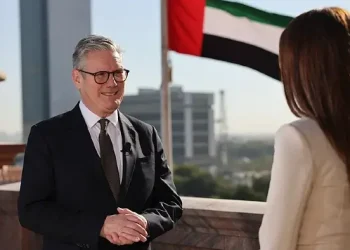The Foreign Ministers of France, Germany, and the UK have jointly condemned threats against IAEA Director General Rafael Grossi, urging Iran to resume full cooperation with nuclear inspectors.
This statement highlights the potential impact on UK energy security and global non-proliferation efforts.
Joint Action to Ensure Nuclear Safety
The recent joint statement by the E3—France, Germany, and the UK—emphasizes their unified stance against threats directed at IAEA Director General Rafael Grossi.
The ministers demand that Iran restore full cooperation with nuclear inspectors to prevent risks associated with nuclear proliferation. This call for action underscores the importance of maintaining transparency in Iran’s nuclear activities.
Implications for UK Energy Security
The UK’s reliance on nuclear power for 15% of its electricity highlights the potential consequences of disruptions in global uranium supply chains.
With Iran’s uranium stockpiling posing a threat to these supply chains, there is a risk of increased energy costs for UK consumers. The National Grid has contingency plans in place to address potential instability in Middle Eastern markets.
Human Impact: Beyond Energy Costs
Beyond energy prices, this geopolitical tension affects diplomatic families stationed in Tehran who face heightened evacuation risks.
Additionally, reduced Iranian transparency compromises the UK’s ability to assess nuclear threats accurately. These developments underscore how international relations can directly impact everyday life in the UK.
What You Should Know
- E3 demands Iran restore full IAEA access to prevent proliferation risks.
- UK energy security could be affected by disruptions in uranium supply chains.
- Diplomatic families face increased evacuation risks from Tehran.
- Nuclear monitoring gaps may compromise threat assessments.
- E3 unity emphasizes legal obligations under international agreements.
Navigating Diplomatic Challenges
The E3’s demand for ‘full cooperation’ signals potential snapback UN sanctions reminiscent of past measures that significantly impacted Iran’s oil exports.
As tensions rise, diplomatic efforts continue amid stalled negotiations in Vienna. The UK’s role as a mediator is crucial in balancing diplomacy with pressure tactics to ensure compliance from Tehran.
“Iran must adhere to its legally binding obligations under international agreements.”
— Joint Statement by E3 Foreign Ministers
Food for Thought
This situation underscores the interconnectedness of global politics and local impacts.
As tensions escalate over Iran’s nuclear program, it is vital for policymakers and citizens alike to consider both immediate effects on energy security and broader implications for international stability and safety.
Sources: UK Government, World Nuclear Association, Ofgem, Foreign, Commonwealth & Development Office and The Rt Hon David Lammy MP.
Prepared by Ivan Alexander Golden, Founder of THX News™, an independent news organization delivering timely insights from global official sources. Combines AI-analyzed research with human-edited accuracy and context.









